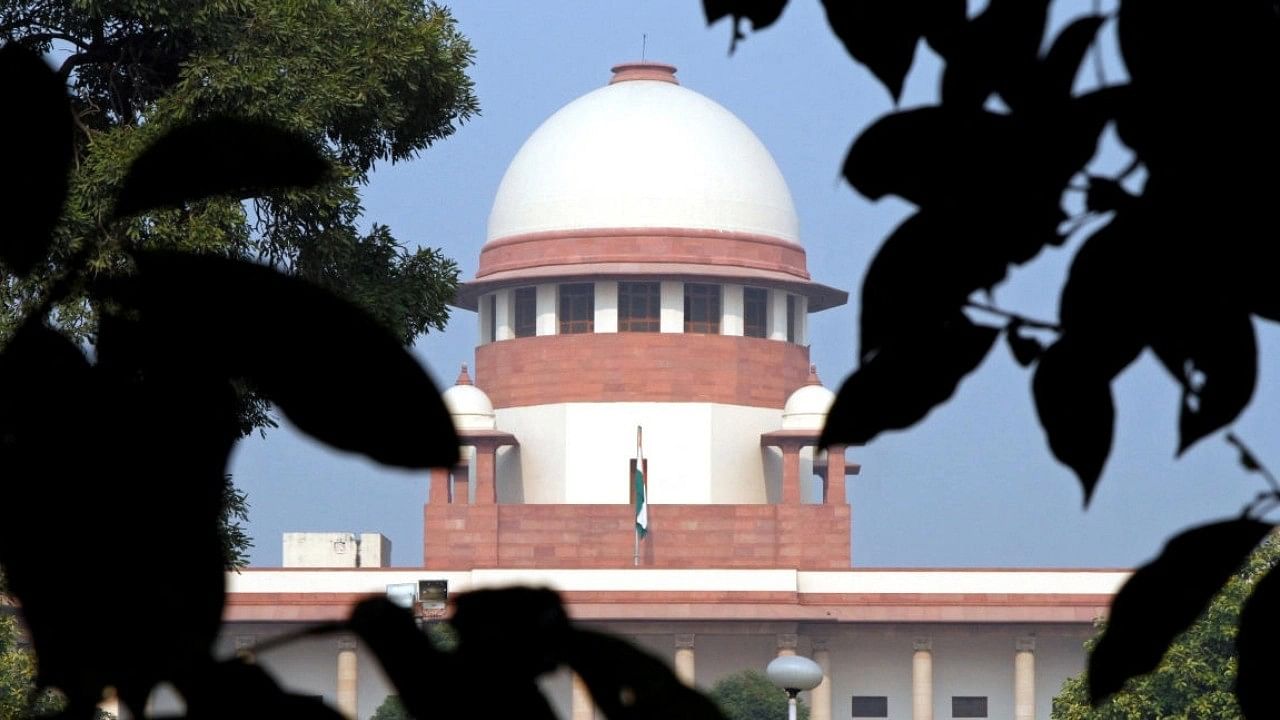
The Supreme Court of India.
Credit: PTI Photo
New Delhi: The Supreme Court has agreed to examine whether a transgender person, who chooses to become a woman after undergoing gender reassignment surgery, can seek relief under the Domestic Violence Act (DV Act).
A bench of Justices Vikram Nath and Rajesh Bindal admitted the appeal filed against the Bombay High Court order for hearing in 2025 and asked the counsel for the husband and his estranged wife to complete their pleadings by then.
"Leave granted. Hearing expedited. Counsel who is appearing through caveat, waives formal notice on behalf of the respondents. She prays for and is granted four weeks' time to file a counter affidavit. Rejoinder affidavit be filed by counsel for the petitioner within six weeks, as prayed. List the appeal for hearing in the year 2025," the bench said in its October 30 order.
The husband has approached the top court against the high court's March 16 verdict which said a transgender person who chooses to become a woman by undergoing gender reassignment surgery can seek relief under the DV Act, upholding the lower court's decision directing the man to pay maintenance to his estranged wife who was earlier a transgender person.
The high court had said in its order the word 'woman' is no longer limited to the binary of women and men and also includes transgender persons who have changed their sex in tune with how they identify themselves.
It had noted that section 2(f) of the DV Act that defines a domestic relationship is gender neutral and hence includes persons irrespective of their sexual preferences.
There is no manner of doubt that a transgender person or either a male or female who has undergone a sex change operation is entitled to the gender of their choice, the order said.
"The object and purpose of the provisions of the Domestic Violence Act is to provide more effective protection of the rights of the women who are victims of violence of any kind that occurs within the family," it had said.
"Therefore, a transgender person who has undergone surgery to change their gender to female needs to be termed as an aggrieved person within the meaning of the Domestic Violence Act," the high court had said.
It had passed the order on a plea filed by the husband challenging the trial court order of October 5, 2021 by which he was asked to pay Rs 12,000 every month as maintenance to his wife who had initiated proceedings against him under the DV Act.
According to the estranged wife, she became a woman in 2016 after a gender reassignment surgery. The couple got married the same year but differences arose two years later following which she filed an application before a magistrate seeking maintenance under the DV Act.
The man told the high court in his petition that his wife did not fall within the definition of an aggrieved person under the Domestic Violence Act as such right was conferred only on 'women' in a domestic relationship.